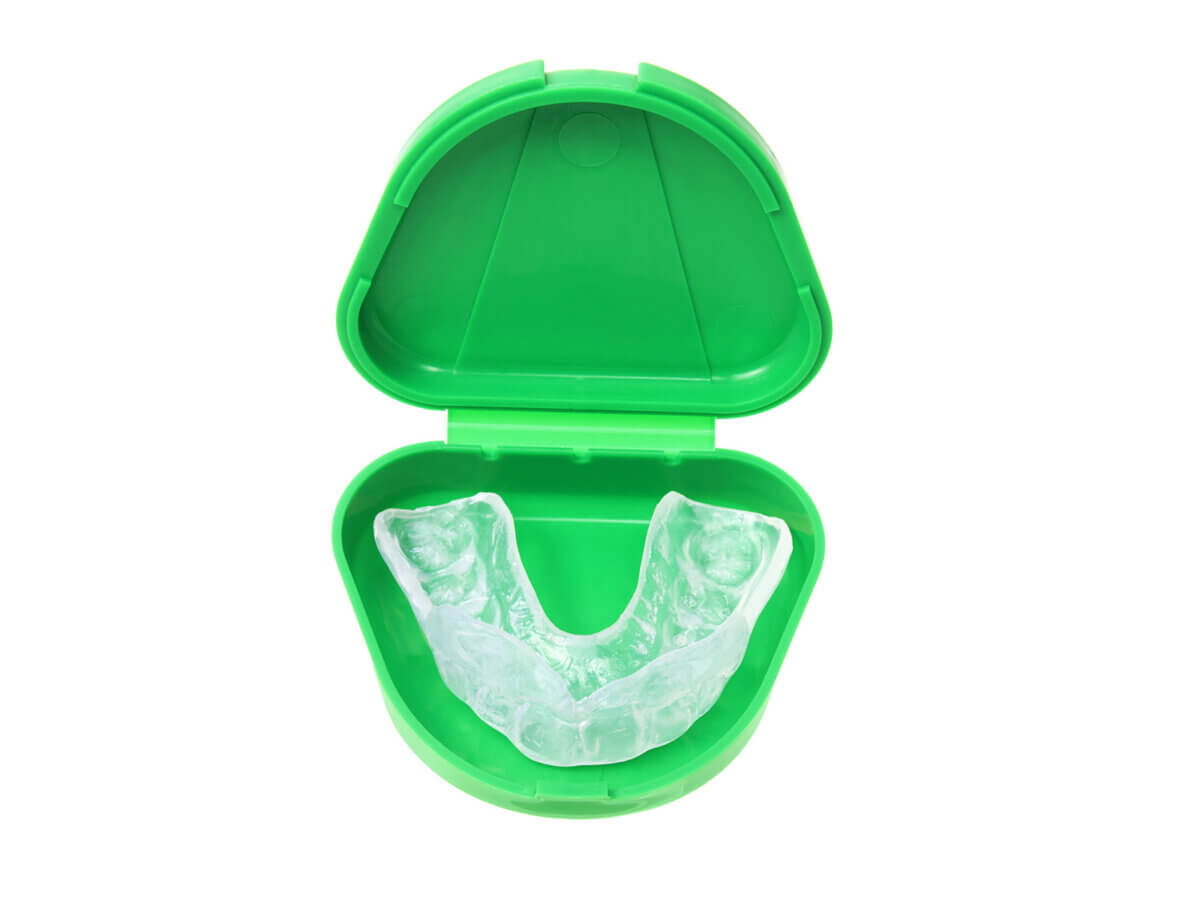Blog
Dental hygiene tips for healthy teeth & gums

Can A Dental Mouthguard Decrease Jaw Pain?
Jaw discomfort or pain, clinically known as temporomandibular joint disorder (TMD), can be an incredibly uncomfortable condition affecting millions worldwide. The pain can range from mild to severe, often impacting one’s ability to speak, eat, and engage in everyday activities.
One potential solution to alleviate this discomfort is the use of dental mouthguards. In this article, we will delve into the relationship between dental mouthguards and jaw pain, discussing their function, benefits, and effectiveness in mitigating TMD symptoms.
Understanding Temporomandibular Joint Disorder (TMD)
The temporomandibular joint (TMJ) connects the jawbone to the skull, facilitating movements essential for speaking, chewing, and yawning.
TMD encompasses disorders affecting this joint and the surrounding muscles. Common symptoms include jaw pain, clicking or popping sounds when opening the mouth, headaches, and difficulty in opening or closing the mouth.
The Connection Between Dental Mouthguards and TMD Relief
Dental mouthguards, also known as occlusal splints or bite guards, are custom-fitted oral appliances designed to fit over the upper or lower teeth. While commonly associated with sports protection or addressing sleep disorders like bruxism (teeth grinding), they are also recognized as a potential solution for TMD-related jaw pain.
These mouthguards work by adjusting the way the upper and lower teeth meet, fostering a balanced and relaxed bite. They cushion the force exerted during chewing, preventing undue pressure on the temporomandibular joint. This can reduce muscle tension and strain on the joint, potentially decreasing jaw pain over time.
Benefits of Using Dental Mouthguards for Jaw Pain
- Pain Relief: The primary advantage of dental mouthguards for TMD is potential pain relief. By fostering a healthier jaw alignment, these devices can help alleviate discomfort and reduce the frequency and severity of pain episodes.
- Prevention of Teeth Grinding: Many TMD sufferers also experience bruxism, which involves clenching or grinding teeth, often during sleep. Dental mouthguards can address both TMD and protect teeth from bruxism’s damaging effects.
- Muscle Relaxation: Tense jaw muscles can intensify TMD symptoms. Dental mouthguards promote muscle relaxation by providing a stable bite position, reducing muscle strain, and minimizing jaw tension.
Choosing the Right Dental Mouthguard
When considering a dental mouthguard for TMD relief, it’s essential to consult a qualified dental professional. They will evaluate your condition, discuss your symptoms, and recommend the most suitable mouthguard type. Available options include:
- Soft Mouthguards: Made of flexible materials, these are often suggested for individuals with mild TMD symptoms. They offer cushioning and can be more comfortable for some users.
- Hard Acrylic Mouthguards: More rigid, these are designed to modify the bite by creating a new biting surface. They are typically recommended for more severe TMD cases.
- Dual Laminate Mouthguards: These combine soft and hard materials, aiming to provide both comfort and bite adjustment.
Conclusion
Dental mouthguards can play a significant role in decreasing jaw pain associated with TMD. By promoting proper jaw alignment, distributing bite forces, and alleviating muscle tension, these oral appliances offer a potentially effective solution for TMD discomfort.
However, each individual’s case is unique, making consultation with a dental professional essential to determine the best treatment plan. If you’re experiencing TMD symptoms, consider the potential benefits of dental mouthguards under the guidance of a qualified dentist.


